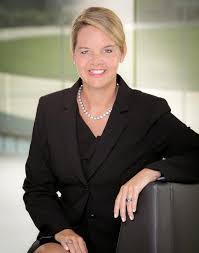
ATLANTA – The coin-operated amusement machines (COAM) business in Georgia has been thriving since the Georgia Lottery Corp. took over regulating the industry in 2013, Lottery President and CEO Gretchen Corbin said Wednesday.
Georgians spent more than $3 billion during the last fiscal year playing the machines, mostly at convenience stores and restaurants across the state, Corbin told members of a Georgia Senate study committee at its kickoff meeting.
After players redeemed prizes valued at $2.1 billion, that left more than $900 million in net revenue for COAM license holders, the businesses housing the games and the lottery to divide.
Under state law, 10% – roughly $91 million – went to the lottery for distribution to Georgia’s HOPE Scholarships and pre-kindergarten programs, a figure that has grown from $33.5 million just five years ago.
Despite that success, state policy makers see room for improvement, which is where the study committee comes in.
Lt. Gov. Geoff Duncan, the Senate’s presiding officer, appointed four senators and five industry representatives to the committee last month.
“This committee was specifically appointed to review the current regulatory scheme of bona fide coin-operated amusement machines enforced by the Georgia Lottery,” Duncan said in a statement. “This committee will take a comprehensive look at the COAM industry to ensure that we protect legitimate businesses, while providing guidelines for the Georgia Lottery to oversee this industry and ensure compliance with the law.”
A complaint with the industry senators on the committee cited Wednesday was the awarding of cash to winners, which is prohibited. Legal prizes under the law include lottery tickets, gasoline and in-store merchandise, but not cash.
Corbin said a pilot project the lottery launched recently allows winners to receive a COAM gift card.
“It could provide for a smarter transaction between the customer and the machine, so people will play it more,” she said.
“That may be a way to clean up in the industry,” added Sen. Larry Walker III, R-Perry.
Corbin said her goal for getting the best data from the pilot project is to widely distribute the gift-card option geographically. She also wants to offer gift cards both in stores that sell a lot of lottery tickets and in those with poor sales.
“We’re really trying to be as inclusive as possible,” she said.
Sen. John Kennedy, R-Macon, the study committee’s chairman, responded to complaints from representatives of businesses housing the machines that the panel is top-heavy with executives from the vendors that provide them.
It was simply a matter of the vendors stepping up first and volunteering to serve on the committee, Kennedy said.
“There is no effort to stack the committee,” he said. “We’re going to make sure going forward that the locations are heard.”
The committee is due to hold two more meetings. Its deadline for recommendations is Dec. 1.